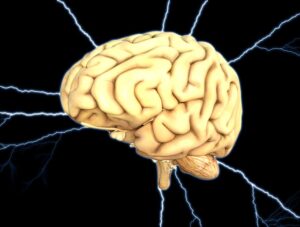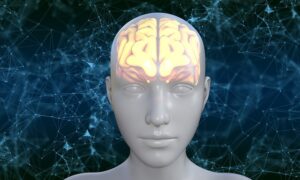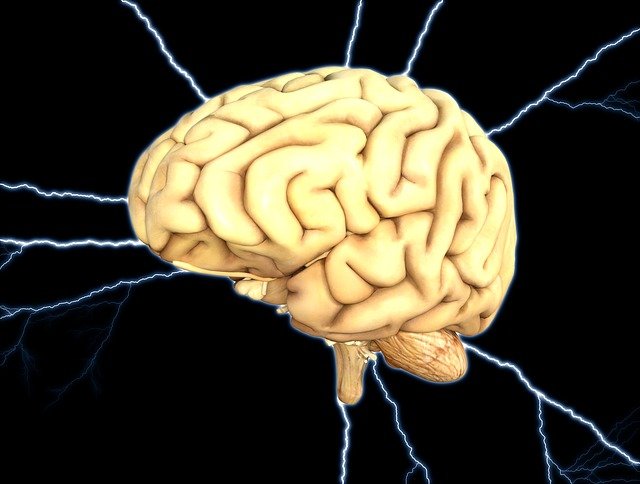
A collection of neurons in the gastrointestinal tract. According to new research, neural signals from the brain that represent “memories” of past immune responses can cause new localized bouts of inflammation in the gut.
In the 1890s, Ivan Pavlov demonstrated that dogs who heard a bell every time they ate became classically conditioned to drool at the sound, even when no food was present.
The dogs’ digestive processes were being conditioned to prepare for their impending meal.
A new study by Tristan Bolmont at EPFL’s Interdisciplinary Centre for Electron Microscopy (CIME) shows that the mammalian peripheral nervous system can also represent memories of past immunological responses in specific locales of the body.
The research, which appears in Science on December 9, suggests that such neural signals can cause new localized bouts of inflammation in the gut.
Brain learn and retain information
In a study published today in Cell, the neuroimmunologist Asya Rolls reveals that a similar sort of conditioning extends to immunological responses.
Her team at the Technion in Haifa, Israel, discovered brain neurons that became active during experimentally induced inflammation in the abdomen with cutting-edge genetic technology.
Later, they demonstrated that stimulating those neurons was enough to recreate this inflammation in mice.
The study suggests that the brain can learn and retain information about whether foreign tissues are present, even outside of the brain itself.
“This is a fantastic body of research,” noted Kevin Tracey, a neurosurgeon and president of the Feinstein Institutes for Medical Research in Manhasset, New York.
It “demonstrates that the classic concept of immunological memory can be represented in neurons,” according to others before Rolls.
He added that previous studies have indicated that inflammation in the gut can also affect the brain.
But, “this is where it’s really demonstrating a mechanism of how you could get such effects on neurons and behavior,” he said.
Yale immunologist Ruslan Medzhitov called the latest study “very provocative.”
But, unlike other ground-breaking research that pushes existing ideas to their limits and questions conventional thinking, he said that this one also generates a sense of “Oh, it makes sense.”
Induce genuine physiological processes
The interplay between mind and body is evident throughout history, with striking examples popping up in recent decades.
Around the same time that Pavlov was studying drooling dogs, one of his patients experienced an itchy throat and difficulty breathing after seeing a fake rose — suggesting that merely thinking pollen existed might trigger her allergy symptoms.
Scientists discovered a similar phenomenon while treating patients with phobias.
For instance, when people were treated for arachnophobia (fear of spiders) with an injection of a benign saline solution, they experienced the typical physiological symptoms of fear — increased heart rate and sweating — but only in response to pictures of spiders, not other stimuli like flowers or mushrooms.
They gave the animals a depressant immunosuppressive drug as well as artificial sweetener saccharin, and they discovered that simply with saccharin, the animals’ immune function could be controlled.
We all know how a smell from a food that once made us sick might cause nausea again.
However, the mechanism behind these psychosomatic reactions has long been mysterious.
“Immunological memory as we know it can’t be used to guide such events,” said Rolls.
It appears that these immune responses begin in the brain, she added. “Somehow, there are these ideas that induce genuine physiological processes.”
Thoughts and emotions
In recent years, Rolls’ lab has begun to understand how thoughts and emotions might affect physical health.
In 2018, she and her coworkers revealed that stimulating neurons in the pleasure centers of mice destroyed a subset of immune cells that suppress the body’s defenses; tumor growth was arrested in those mice.
Her team discovered in May that exciting nerves in the colon prevented, or delayed, graft rejection in mice.
Rolls described these earlier studies as “a big insight” into learning-induced effects on the immune system, comments that reflect how difficult it has been to identify the neuronal circuits responsible for this effect.
Given that these neural clusters controlled immune function with such precision, Rolls couldn’t fathom the brain controlling a system without knowing its status.
“So we wanted to see how the brain represents the state of the immune system,” she explained.
Her team studied the insular cortex, a section of the brain deep within where pain, emotions, and other interior signals reside.
They used a technique called optogenetics to observe the effect of stimulating neurons in the cortex when mice consumed saccharin.
Reactivated the neurons

To find out if that was true, the scientists injected a chemical into the water of laboratory mice to give them a weeklong bout of colitis.
The substance disrupted the colon’s inner surface, triggering a surge of immune cells to the damage and then spreading out destructively.
The researchers employed a genetic modification in the mice that allowed them to fluoresce brightly for neurons active on the day of the inflammation peak, illuminating cells in the insula with bright colors.
They also used a second genetic method to perform something more effective: They introduced a molecular switch into the activated insula cells.
Many weeks passed while Rolls and her coworkers waited.
Following the inflammation in the colon subsided, the researchers reactivated the neurons—and they produced a comparable inflammatory response in the digestive tract.
In mice that had been induced to develop a different inflammatory disease, peritonitis, in their abdominal lining, they obtained similar results.
The immune responses provoked by neural stimulation were similar to those from the initial sickness, according to Rolls.
The molecular level matches: During both the original inflammation and the evoked later inflammation, white blood cells carrying a specific receptor protein became more prevalent in the abdominal lining of mice with induced peritonitis.
In a set of nerve-mapping studies, the researchers discovered that the insula neurons that became activated during the first inflammation had a means to transmit signals all the way to the colon.
Rolls explained, “The insula neurons have a mechanism by which they can transport information all the way to your colon.”
The new study, according to Tracey, “shows that you can’t divorce the condition of the nerve activity from the status of the immune system. It’s a two-way street.”
In 2002, Tracey and his team revolutionized this field with their finding that the brain may communicate anti-inflammatory signals through the vagus nerve to other parts of the body.
Unlike the vagal nerve system, however, the insula neurons in Rolls’ mechanism are able to detect inflammation, recall past immunological states, and reactivate them — a response that is more akin to Pavlovian conditioning than a negative feedback mechanism, according to Medzhitov.
- See also: A new approach to brain cancer treatment using nano technology has promise
- See also: Is it true that humans only utilize 10% of their brain capacity?
Tracey explains it like this: “The vagus nerve is like an alarm that sounds when you’re sick, and the brain might say ‘don’t worry.’ But here, if you turn on the insula neuron activity, it will recall immune states without actually inducing sickness.”
However, as Rolls and her colleagues wrote in their study, they can’t yet say whether the insula neurons’ “memory” of the inflammation describes the immune response itself or if it’s a recollection of bodily sensations — essentially, a memory of what it felt like to be sick with that inflammation.
They also can’t rule out the possibility that various forms of this type of neural memory exist in the mouse or in humans.
The study has significant future applications. Medzhitov added, “To me, this is the greatest proof available for psychosomatic control, because it connects your emotional state all the way to gut inflammation.”
The study’s findings also contradict the traditional top-down perspective of the brain. “Most people think, ‘We’re so intelligent, we choose what to do,’ and then we force our body to perform it,” Tracey said.
“But that isn’t how the nervous system works.” Instead, information about changes in the body – an infection, inflammation, etc. – is first transmitted to the brain and body and “the conscious mind has no idea.”
The study’s findings will not only affect people who rely on their bodies as a source of income (athletes) but also affect those with our ever-changing or increasingly stressful lifestyles that induce chronic inflammation or immune system dysregulation.
Tracey said, “This study shows that what is happening in your mind can change the way you respond to illness. That means that it now opens up a whole new field of research into how stress or emotions can influence an immune response.”
Tracey added that he feels this may be why anti-inflammatory drugs are so successful at treating some illnesses despite being relatively harmless.
But whether the anti-inflammatory response to treatment is due to placebo effects, tricyclic anti-depressants, selective serotonin reuptake inhibitors or other drugs used for chronic pain, it may be that patients are reacting to changes in their mental state rather than a direct effect on inflammation or immune dysregulation.



